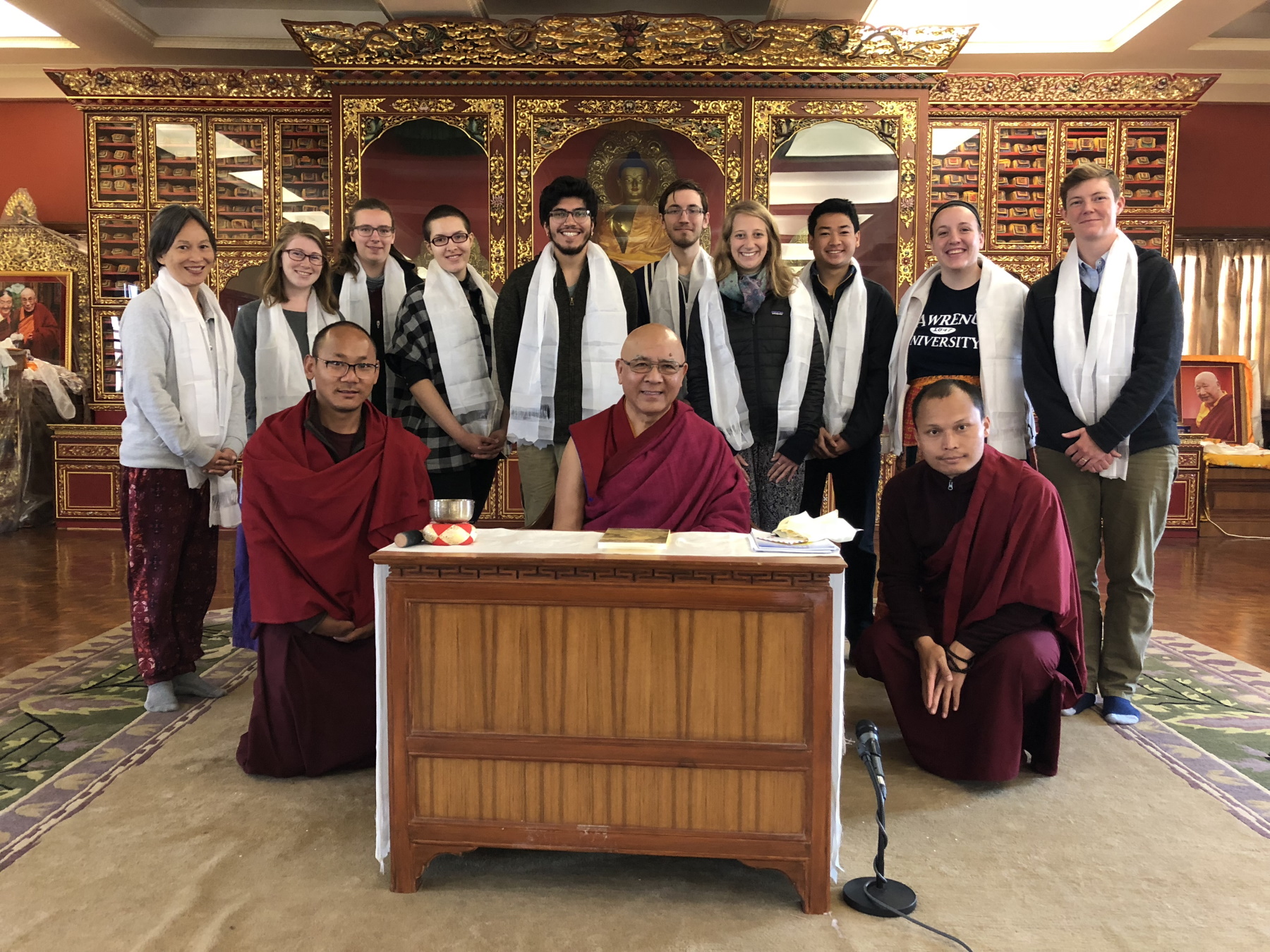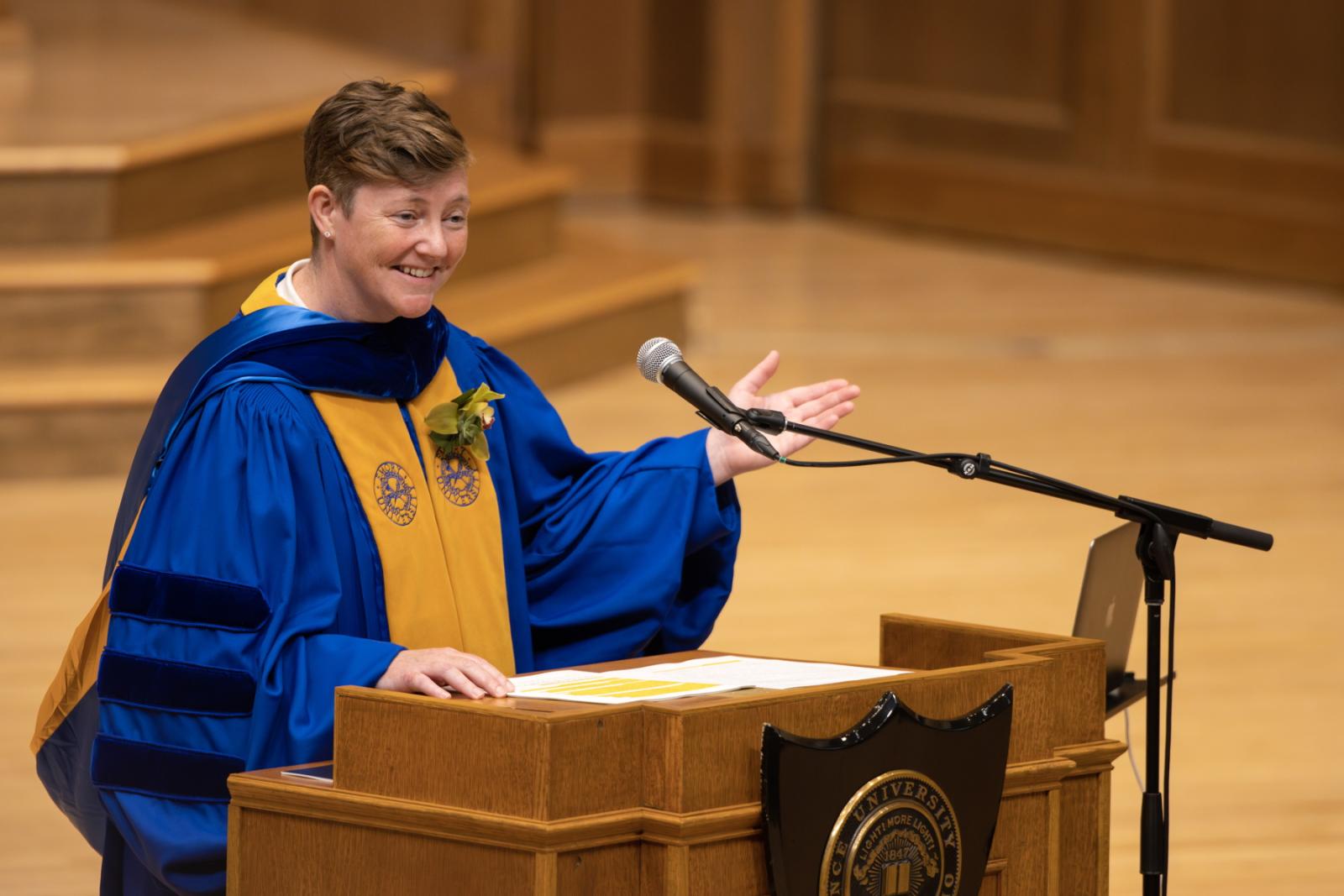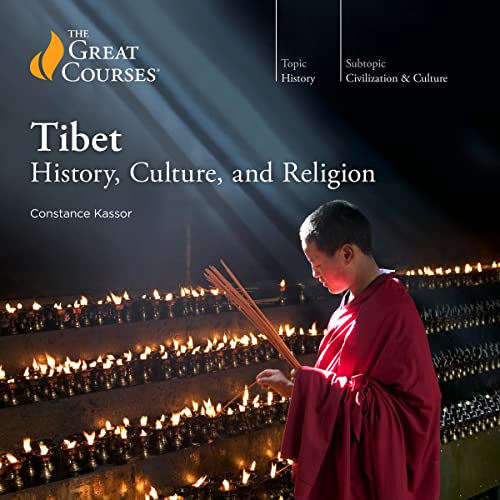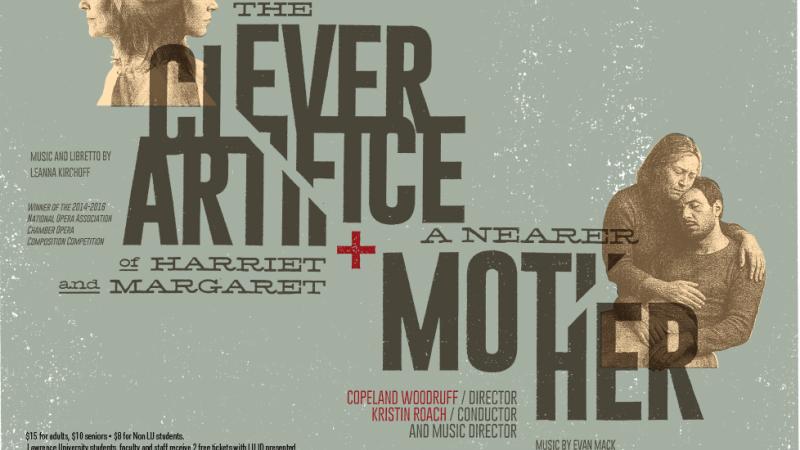At Lawrence, learning is a lifestyle, and certainly not just for the students. Lawrence faculty publish books, compositions, research papers, and, in Constance Kassor’s case, an online lecture series.
Kassor, associate professor of religious studies, has debuted a Wondrium lecture series on Tibet. The 24-part series teaches about the history, culture, religion, and political contention of the Tibetan plateau, commonly referred to as “the roof of the world.” The lectures, ranging from 18 to 30 minutes, take learners from prehistory to present day, and touch on Buddhism, Tibetan food, the Dalai Lamas, and more.
“If Tibet is in people’s consciousness at all, it’s this image of some faraway place,” Kassor said. “What I wanted to show is that it’s a real, complex place and not some idyllic, untouched place.”
The course, released in the spring, is accessible through Wondrium. See the trailer here.
Formerly known as The Great Courses, Wondrium has been producing virtual learning experiences for decades, transitioning from mail-order VHS tapes to the online library it is today. The subscription-based service offers courses taught by experts on a variety of topics, ranging from cooking to archaeology. Kassor had previously worked with the company to produce an audio-only lecture series on Asian religious traditions. Wondrium approached her again to create this course all about Tibet.
Learners are loving it since its release in May.
“She is not an armchair academic but rather is one who [has] lived among the people about whom she speaks. This is personal to her and that makes all the difference,” one reviewer posted. Several reviewers posted that the course has helped them realize just how much more there is to learn about Tibet.
Also on Wondrium: Lawrence's Catherine Kautsky delivers series on great piano works
Two years of work
Kassor, while primarily a scholar of religion, relished the chance to broaden her study of Tibet. Her Wondrium course has been two years in the making. The first eight months consisted of researching and writing lectures. She worked with her editor to create a list of lecture topics that a general audience could understand and learn from.
“I had to do a lot of research and determine what was most important,” Kassor said. “I really tried to present a balanced perspective that looks at Tibet from multiple angles.”
The region of Tibet is a highly disputed place today with a lot of political tensions, Kassor said. There are a variety of heavily conflicting perspectives on Tibet’s boundaries and political status. As a result, academic discussion of Tibet can be polarizing. Kassor said Wondrium trusted her to present a fair perspective throughout the course.
Once Kassor was done writing the lectures, she flew to Wondrium’s headquarters in Virginia to record. Reading from a teleprompter took some getting used to.
“I never get up in front of a classroom and lecture for a half hour,” she said. “I think that’s a pretty rare thing for most professors at Lawrence. Even in a big class, there’s some kind of interaction happening.”
After five days of recording, the footage was sent to the video production team, which added visuals and text, even some in Tibetan script. The lecture series is similar to what you might see on the History Channel, Kassor said.
“I think my favorite ones are the ones about the Dalai Lamas,” she said. “People know who the Dalai Lama is, but people really don’t know a lot about the Dalai Lama tradition.”
Kassor expands learners’ knowledge of the familiar while deflecting misconceptions about the unfamiliar. Whether it’s the tourist draw of singing bowls or the American-made Tibetan Book of the Dead, everyone has something to learn or unlearn from her course.
An unexpected path

Constance Kassor (far right) joins Lawrence students and Tibetan Buddhist monastic scholars at the International Buddhist Academy in Kathmandu, Nepal, in 2017. Kassor has led students on multiple trips while studying Buddhist philosophy.
Kassor has dedicated much of her professional life to studying and teaching about Buddhist philosophy and history. In late May, she and Spanish professor Madera Allan delivered Lawrence's annual Honors Convocation address, discussing Catholic and Buddhist pilgrimages.
“I like to say my trajectory is an advertisement for the liberal arts,” Kassor said.
Kassor’s path changed during her time at Smith College, a small liberal arts school in Massachusetts. Intending to major in biology, her encounter with a visiting Tibetan Buddhist monk helped her discover a passion for Buddhist philosophy. During her time as an undergrad, she studied abroad at a Tibetan Buddhist university in India. She returned to India after graduating and studied Buddhist philosophy and Tibetan culture. Since then, Kassor has spent several years living among Buddhist communities in India and Nepal, and she continues to travel with her students.
Two years after earning her Ph.D. from Emory University in 2014, Kassor joined the Lawrence faculty. She teaches about Buddhist thought and Asian religious traditions.




